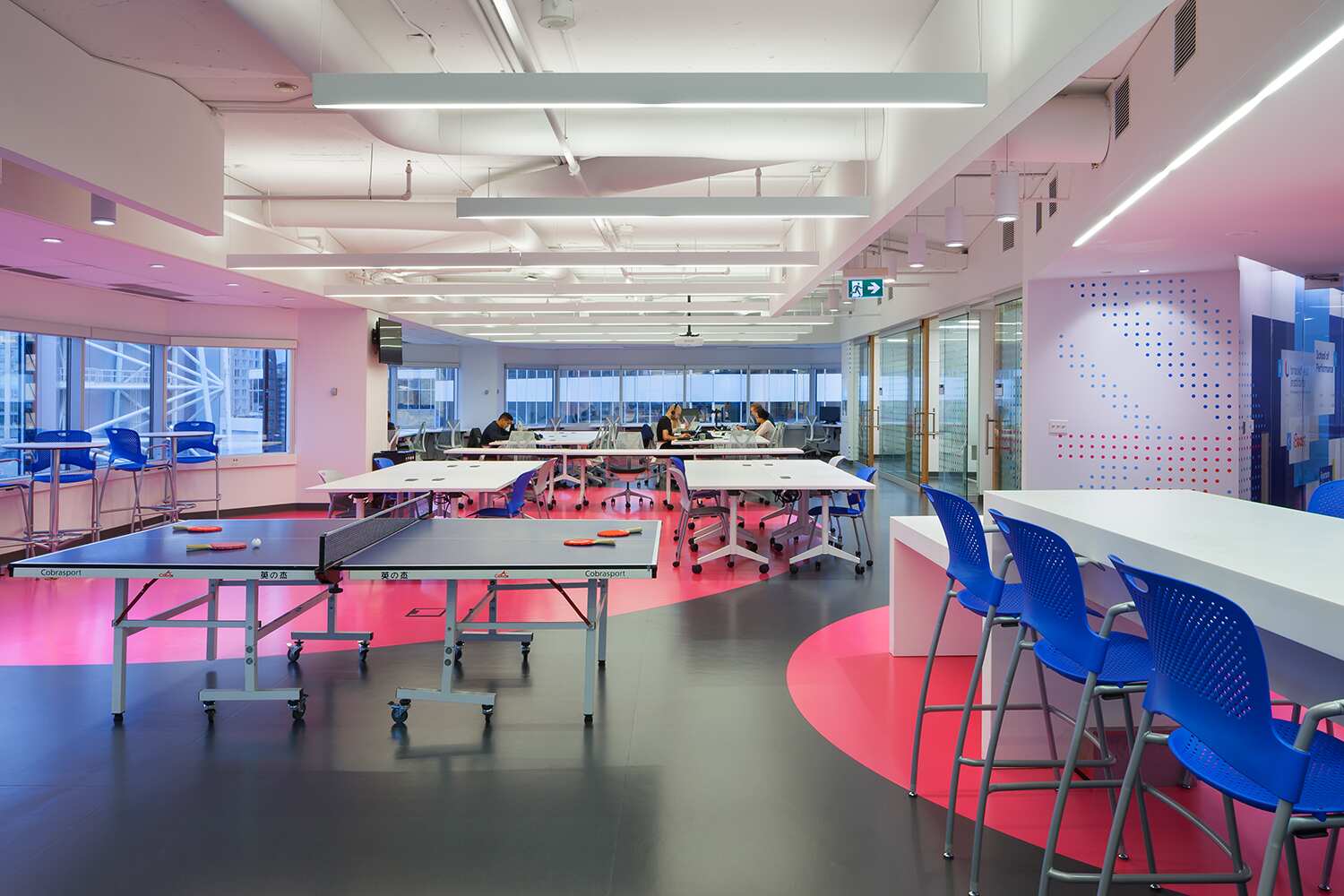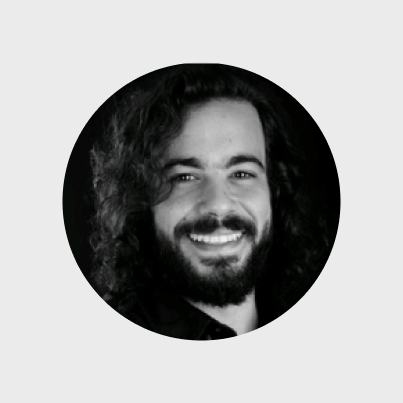The Master of Engineering Innovation & Entrepreneurship (MEIE) program
What makes this program different?
Are you ready to be a changemaker? The Master of Engineering Innovation and Entrepreneurship (MEIE) program will equip you with the skills and knowledge to turn your innovative ideas into reality.
Learn to harness the power of technology to address global challenges and create a sustainable future. Join a community of passionate innovators and let's build a better world together.
Degree Earned:
Master of Engineering Innovation & Entrepreneurship (MEIE)
Fee Estimation:
Domestic: $23,130.44
International: $45,747.45
Options:
Full-Time: 16 months
Part-Time: 28 months (Domestic Students Only)
Innovation Boost Zone (IBZ) membership
Full membership to Innovation Boost Zone (IBZ) - an early-stage tech incubator of TMU's entrepreneurial ecosystem. Network with fellow innovators, develop entrepreneurial skills and gain hands-on experience in our collaborative co-working space.
Mentorship from experienced industry experts
Gain support, advice, and mentorship from seasoned entrepreneurs, experts, and instructors with real-life experience and a passion for teaching throughout the 16 months of study.
Access to seed funding
Access resources and awards through the Innovation Boost Zone, and get connected to different government funding agencies and investors.
Earn while you learn
Earn your degree while continuing to work and build your career.
All MEIE courses are scheduled after 6:00 pm to fit a busy schedule.

Explore your journey
This program is designed for STEM (Science, Technology, Engineering, Mathematics) students and industry professionals who want to pursue entrepreneurship as a career path and/or use new emerging technologies to bring value to their organizations.
Grade requirements:
- A four-year undergraduate degree in engineering, science, technology or mathematics from a recognized institution
- A Minimum of 3.00/4.33 (B) in the last two years of study
Note: Meeting minimum requirements does not guarantee acceptance.
Application requirements:
- Apply through the Ontario Universities Application Centre (OUAC)
- Submit documents to Yeates School of Graduate Studies including:
- A resume/CV (Professional work experience is desirable)
- 2 Letters of recommendation
- Statement of Interest clarifying why you would like to join the program and why you think it is good for you
- Academic transcripts
- English Language Proficiency test (if applicable)
- An interview will also be conducted for selected students
- No supervisor is required
Application Deadline
May 16th, 2025
The MEIE program consists of 10 courses:
- Two Electives
- Three Core EI Courses
- Three Practicums
- Two Projects
Throughout the program, students take their concepts through market discovery, validation, and entry, transforming untested ideas into viable products/services. They gain the knowledge, skills and hands-on experience needed to drive innovation in existing companies or their own ventures.
Students are required to complete three core courses, and three practicum courses, choose two engineering electives and complete two eight-month technology commercialization and go-to-market projects.

“We have meticulously designed a transformative learning experience, combining cutting-edge courses, a dynamic support network, and instructors with unparalleled real-world expertise. This program empowers students to harness emerging technologies, drive meaningful innovation, and create tangible impact—all while earning their master’s degree.”
A typical program path is as follows:
Academic Terms |
Fall Term 1 |
Winter Term 2 |
Summer Term 3 |
Fall Term 4 |
|---|---|---|---|---|
| Electives | EI8001 - Biotechnology Start-Ups --------- EI8002 - Energy Innovation & Entrepreneurship |
EI8003 - Sustainable Entrepreneurship | ||
Core EI Courses |
EI8004 - Finding & Validating Business Opportunity for New Venture |
EI8005 - New Venture Market Development & Financial Planning |
EI8006 – New Venture Business Strategy & Plan |
|
Practicum |
|
EI8007 - Lean Start Up Customer Discovery Practicum |
EI8008 - Lean Start Up Customer Validation Practicum Course |
EI8009 - Lean Start Up Customer Acquisition Practicum - Course |
Project |
EI8010 - Technology Commercialization Project |
EI8011 - Go-To Market Project |
||
- Grade requirements:
If a course mark is less than B- (2.67/4.33 or 70%), you must repeat the course or alternate with another. Failure to maintain an acceptable academic standing could result in your being asked to withdraw from the program. Failure in more than one course will be considered grounds for dismissal. - Graduation Requirements:
Students must complete all required and elective courses (a total of 10 credits) to meet graduation eligibility requirements.
For full course descriptions, schedules and available course electives, please visit the links below.

TMU is home to over 10 incubators and co-working spaces. The Innovation Boost Zone (IBZ) specifically, collaborates closely with MEIE students, offering the freedom to work within the office and lab space. IBZ hosts a range of events, workshops, and talks catered to MEIE students and other startup founders who aspire to grow with an entrepreneurial mindset.
This space provides an excellent opportunity to access different elements of the TMU Zone Learning Ecosystem and engage in project collaboration, meetings, and networking. IBZ is home to many startups and entrepreneurs who are discovering solutions to emerging societal challenges and inspiring communities one venture at a time. Additionally, IBZ offers a diverse selection of equipment and tools for borrowing and sharing, including an exciting Makerspace with a 3D printer and much more.
Whether you’re looking to join a student group, advocate for your peers in student government, challenge yourself and others at our graduate symposium, or just looking for support, we encourage you to make the best of your experience at TMU.

What can you do with this degree?
Our graduates are equipped to propel their innovations from ideation to established businesses. Yet, through experiential learning, they are also well-positioned to help other companies scale their businesses instead. Although many graduates do launch their own ventures, the program also opens career paths in consulting, product management, innovation management, business management, data analysis, and other roles supporting innovation and entrepreneurship.
Alumni careers

Senior Manager
Real-Time Data Analytics @Bell
"The MEIE Program was an amazing journey that changed the way I think about starting a business."
MEIE, ʼ19

Project Coordinator
Zone Learning & Strategic Initiatives @TMU
“MEIE provided countless chances to build a strong network. As a student, you have access to mentors and industry experts who are willing to offer invaluable advice. This network has been instrumental in my career.”
MEIE, ‘24

Environmental Engineer
@Ministry of Health Jamaica
"Coming into the program, you have a whole semester studying a problem. It always seemed so solution-driven before, but then I saw the importance of understanding the problem which strips the solution really to fix the problem that exists, not what we think the problem is.”
MEIE, ʼ24

Founder & CEO
@Venu
“The support, funds, guidance, and practical experience I gained were invaluable. Taking the leap to a new country was worth every challenge.”
MEIE, ʼ24
Startups & Employers
We’re extremely proud of the many companies launched and/or led by our graduates, including:
Employers
- Accenture
- Bell Canada
- Canadian Tire
- Cisco Systems Inc.
- City of Toronto
- Deloitte
- eCampusOntario
- Hoffman La Roche
- Inditex (Zara)
- TD Bank

MEIE scholarships & awards
We want to equip you to meet the financial demands of your grad school journey and offer a number of scholarships and awards to help you meet your educational and career goals.
Visit our awards and scholarships page.

